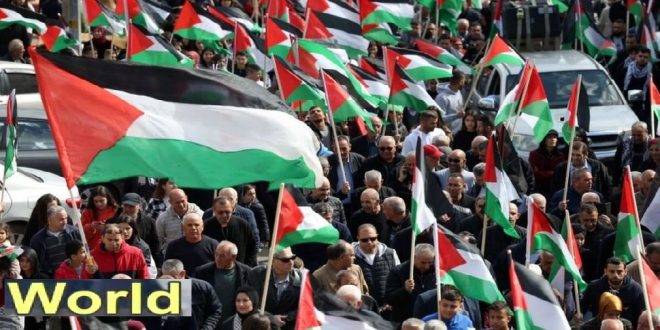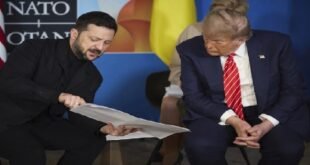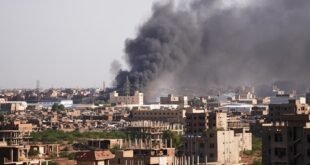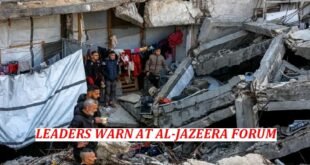27-04-2023
JERUSALEM: At a recent march for Land Day, Jameel Saed denounced the nationwide protests against controversial judicial reform plans that have convulsed Israel since the start of the year.
“I didn’t participate in any and I’m not going to. I don’t think that many Palestinians did,” said the student from the Arab city of Nazareth, in northern Israel.
“The Israeli protests are calling to get the status quo back – to ‘claim back democracy’. But we don’t think that it was anything but tyranny and apartheid.
 “This is not something that we want.”
“This is not something that we want.”
Jameel is one of Israel’s approximately two million Israeli Arabs. Israeli Arabs are Palestinians and their descendants who remained in the land which became Israel in 1948. They comprise about 20% of Israel’s population. While they are officially citizens of Israel, many estimates and polls vary self-identify as Palestinians.
Hundreds of thousands of demonstrators have been on Israel’s streets weekly. They have been demonstrating against the right-wing government’s proposed reforms that would radically increase its control of Supreme Court appointments and decisions.
In the face of the uproar in Israel’s towns and cities, Prime Minister Benjamin Netanyahu’s coalition has now put the reforms on hold at least until the Israeli parliament, the Knesset, returns from recess on 30 April.
Jameel believes that the march at Land Day, the annual commemoration of the Israeli army killings in 1976 of six Palestinians demonstrating over Israeli expropriation of their land – is more important for Palestinian rights than participation in the current mass protests.
On the march in the Israeli Arab town of Sakhnin, where some of the killings took place, he questioned the apparent disparity in treatment by Israeli security forces of Israeli and Palestinian protests.
 “If we did one quarter of what the Israelis are doing we would’ve been killed by now,” he said.
“If we did one quarter of what the Israelis are doing we would’ve been killed by now,” he said.
Of the demonstrations that have taken place, involvement by Israel’s Arab citizens has been low and primarily in Israeli Arab areas in the north.
Some are happy to see the judicial crisis play out, or think it is the logical outcome of a state and system which many feel has always excluded their community from full democratic treatment.
Many argue that past Supreme Court decisions which have discriminated against Palestinians, both in Israel and in the Occupied Territories, provide no impetus to defend it. For instance, upholding the 2018 nation state law that stated that in Israel the right to self-determination is unique to Jewish people.
More recently, the court approved the eviction of 1,000 Palestinians from an area in the occupied West Bank so that Israel’s army can use it as a training zone. UN human rights experts warned that the move without military necessity in an occupied territory could constitute a war crime.
After a string of inconclusive elections in Israel, and the fall of a short-lived broad spectrum coalition government, November’s polls saw Netanyahu propelled back into power at the head of the most right-wing government in Israel’s history. (Int’l Monitoring Desk)
 Pressmediaofindia
Pressmediaofindia




